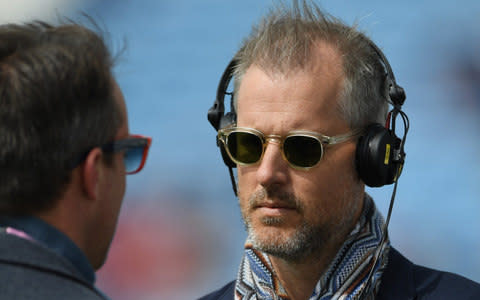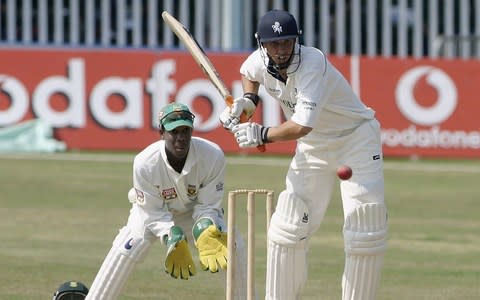Ed Smith to be appointed chief selector of England team

Andrew Strauss, the director of England cricket, will appoint Ed Smith as chief selector on Friday, signalling a new era of data analysis playing a greater role in the picking of the England team.
The appointment of Smith, who played four Tests for England in 2004, will divide opinion and be seen as underwhelming by some, but he will at least provide a fresh outlook on a Test team who have grown stale over the past two years and who have also suffered an awful run of results overseas, including defeats in Australia and New Zealand last winter.
Strauss interviewed candidates last week and Smith beat a shortlist that included former England players Derek Pringle and Mike Selvey, Nottinghamshire director of cricket Mick Newell, as well as Simon Hughes, the journalist and former Middlesex and Durham bowler.
Smith will now appoint a full-time deputy and a panel of scouts reporting to him. Trevor Bayliss, the England coach, will remain a full-time selector. It is understood Joe Root, the Test captain, was not consulted on Smith’s appointment.
Since retiring as a player in 2008, Smith has worked in the media as a columnist for The Times, The Sunday Times and the New Statesman but has never really settled into a regular role. He was accused of plagiarism last year when one of his articles for the ESPN Cricinfo website was said to be similar to one written by someone else for The Economist and he has not worked for the site since.

He has written four books and worked as a commentator for Test Match Special, including on the Ashes tour last winter. Highly educated with a double first in English from Cambridge, it is no surprise Smith impressed Strauss and an interview panel that also included Mo Bobat, a former schoolteacher who is the England and Wales Cricket Board’s “player identification lead” and an increasingly important figure behind the scenes. Strauss asked candidates to make a presentation on the question of whether selection is an art or science. Smith’s appointment seems to make clear which way Strauss believes it is going.
Smith has had little involvement with county cricket since his retirement, but shadowed the Royal Challengers Bangalore in the Indian Premier League last year, where his friend Daniel Vettori is coach and a big believer in the role of data in selection. Smith is also close to Nathan Leamon, the England analyst who built the CricViz data platform, and such information now forms part of the England players’ annual assessment.
He will be tasked with modernising selection methods and will take sole responsibility for decisions. Under his predecessor, James Whitaker, it was never clear who made the final call and Strauss has spent nearly three years assessing how the whole process can be done better. The biggest challenge for Smith will be communication and building relationships with county directors of cricket, as well as explaining selection to the media.

During a difficult two years as captain of Middlesex, Smith struggled with communication and dealing with players, but has admitted to making mistakes in that role. Proving he has learnt will be one of his first tasks as he builds partnerships with county coaches and players.
The county relationships will be crucial. The ECB wants to dispel the notion that certain counties offer a route to the England Test team and to rebuild trust between the national side and a county game becoming increasingly divided between the Test grounds and everyone else.
Strauss has used the Professional Cricketers’ Association’s most valued player data format for choosing the North v South teams and believes cricket is light years behind other sports in its use of such statistical information.
Bayliss has an old-school approach and could not be more different to Smith, but his time as head coach will be over at the end of next summer and Smith’s relationship with his successor will be of greater importance.

 Yahoo Sport
Yahoo Sport 





































